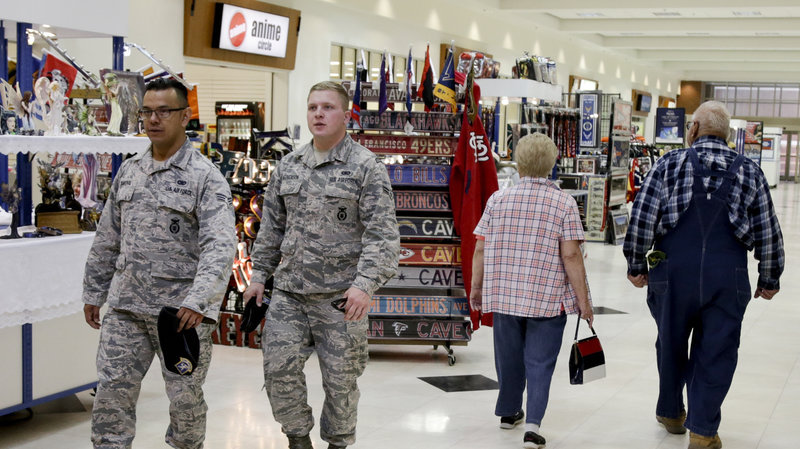A U.S. Department of Defense retailer that sells goods and services on Army and Air Force military installations worldwide has decided not to seek relief from President Donald Trump’s tariffs on Chinese imports.
The Army & Air Force Exchange Service had filed for exclusions with the Trump administration from 25% duties on backpacks, duffels and about 40 other items. But the Exchange said in a statement it has rescinded all requests for tariff waivers, without providing a reason.

The Exchange said in exclusion requests previously posted online that “the required combination of material specification, cost, and production capacity has precluded U.S. sourcing for these products.” It also said that while its suppliers are exploring options for third-country sourcing, the goods are not available outside of China without undermining its ability “to provide the best value products for soldiers and airmen.”
Retail sales from Chinese imports represented about 13% of total Exchange sales last year, a spokesman said.
Exclusion Deadline
The Department of Defense retailer, established in 1895 and run by a board of directors, bills itself as the 62nd-largest retail organization in the U.S. with annual revenue of $8.7 billion. It said it funds 97% of its operating budget from the sale of goods and services, and the remaining funding comes from appropriated federal funds.
Monday was the deadline for companies and other entities to request exclusions from the third round of tariffs on $200 billion in Chinese imports that Trump imposed last September, after he increased the duty rate to 25% from 10% in May. About 2,600 companies and other entities including The Home Depot Inc., Nissan North America Inc. and the Retail Industry Leaders Association filed almost 30,340 requests for duty relief on individual products, according to data from the Office of U.S. Trade Representative.
As of Oct. 1, 71 exclusion requests for relief from the third round of tariffs had been approved—including 10 from Apple Inc.—and almost were 400 denied, with the remainder under review, an analysis of USTR data shows.
The USTR announced additional exclusion approvals this week from the almost 13,700 requests in the first two rounds of tariffs imposed last year on $50 billion in goods. As of Sept. 27, USTR had denied 62% of them and approved 31%, data show.
The Trump administration has said it plans to offer an exclusion process for the fourth round of duties on about $300 billion in essentially all remaining Chinese imports, some of which took effect Sept. 1 and others delayed until Dec. 15, but no details have been announced.
Chinese Vice Premier Liu He is set to visit the U.S. next week for further talks with U.S. negotiators as the world’s two largest economies try to complete a sweeping trade deal.











